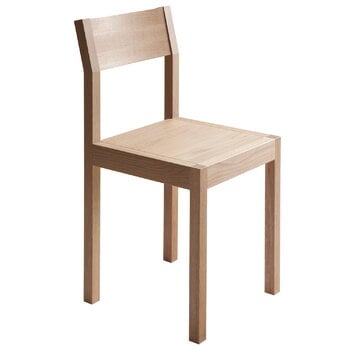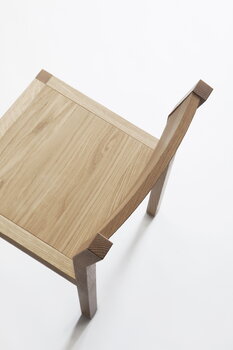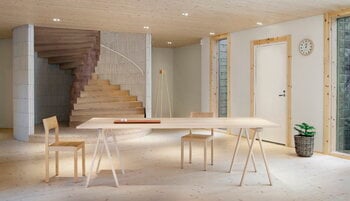Nikari’s Seminar chair was designed in 1992 by the brand’s founder Kari Virtanen. The oak chair was originally created as an example piece for a lecture Virtanen held for design students about traditional manufacturing methods of wooden chairs. Since then, the Seminar collection has expanded with other pieces whose simple, traditional design language fits into homes and public spaces alike.
Nikari products are made in Finland using only certified wood.









